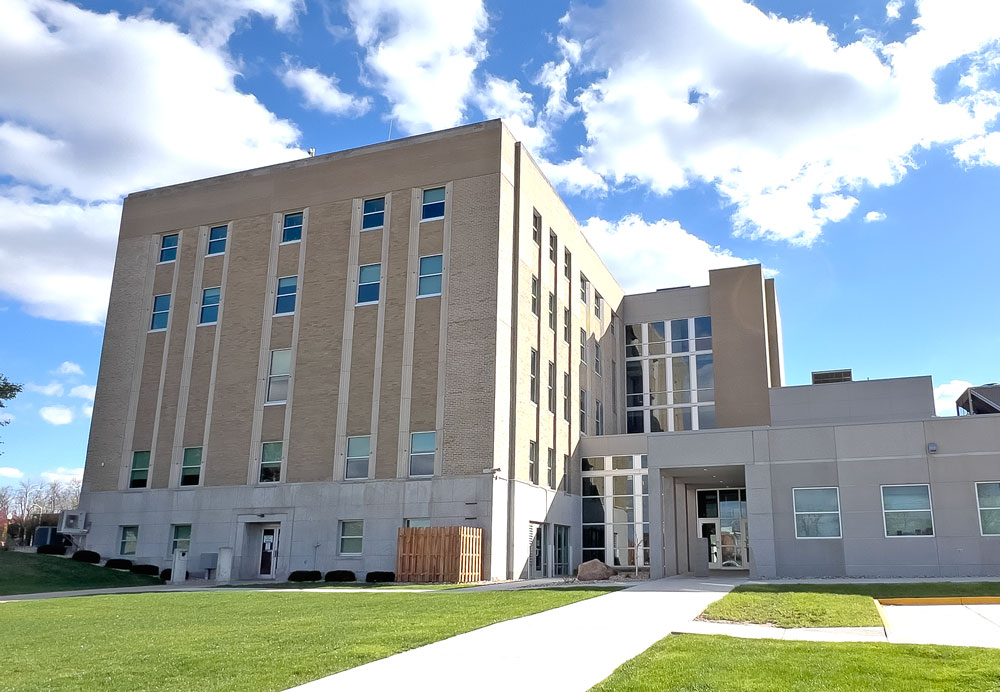New focus on discipline paying academic dividends at Charles City High School
By Travis Fischer, tkfischer@charlescitypress.com
Jeromiah Bliss is halfway through his first year as principal of Charles City High School, but says he has already seen positive changes in his students as they enter the new semester.
Applying his background in behavioral disorder teaching, Bliss has dedicated his first semester in Charles City to shoring up discipline in the district, clearly establishing what is expected of students and what happens when those expectations are not met.
On a similar front, Associate Principal Susan Johnson has tackled attendance, tracking students who are missing classes or absent from school entirely and holding both students and parents accountable. Preferably, but not always, before truancy laws are enforced.

“First and foremost is communication with parents,” said Bliss. “I’ve had more parent meetings this one semester than I’ve had my entire educational career combined.”
Bliss said that one of the bigger hurdles to overcome is convincing students that enforcement of rules isn’t selective or personal, but is done to demonstrate how a student’s actions and behavior impact them and those around them.
“The irony of it all is I’m just doing my job description. I haven’t put any new rules in. I just enforce them,” said Bliss. “I’m just walking into a situation where it either hadn’t been done at this level or hadn’t been done at all.”
Enforcing rules is not always easy. During the week of Homecoming, 147 students had detentions to serve before being allowed to participate in activities like the Homecoming dance. Bliss says standing firm on that policy against both students and parents did not make him popular.
“It doesn’t make you many friends, but it does set an expectation,” said Bliss.
From attendance policies to simple expectations like not wearing hats in school, Bliss said he hopes that instilling a sense of discipline in his students will give them a powerful tool to improve not just their academic performance but their post-graduation prospects.
“It’s a discipline and schools are there to teach you how to be disciplined,” said Bliss. “Discipline doesn’t mean a smack on the hand. It means that you can do it. That you can meet an expectation.”
He said it looks like the approach is already starting to pay off. Comparing the first semester of this school year with the first semester of the previous school year, the number of F grades in the high school has seen a dramatic reduction, going down from 438 to 167.
If there is a downside to Bliss’ approach, it’s that the laser-focus on student discipline has limited his ability to build relationships with the teachers in his building during his first year. He acknowledges that he hasn’t been able to spend as much time in classrooms as he would like.
“The unintended consequence of laying a foundation around discipline and attendance is that it takes an awful lot of time,” said Bliss. “It’s tough to get to everybody.”
That said, Bliss hasn’t been working alone either. Along with Associate Principal Johnson, he has worked closely with the district’s social worker, juvenile court liaison, instructional coaches, AEA staff and other administrators in the district to tackle the school’s attendance issues.
“It’s never just one person,” said Bliss.
Going into the second semester, Bliss said he hopes to spend more time getting to know the teachers in the building, along with building up student leadership and keeping the community involved in the district by letting them know what students are achieving.
“We’ve got great kids, even the ones that make bad decisions,” said Bliss. “I truly believe in the best in all of them.”









Social Share